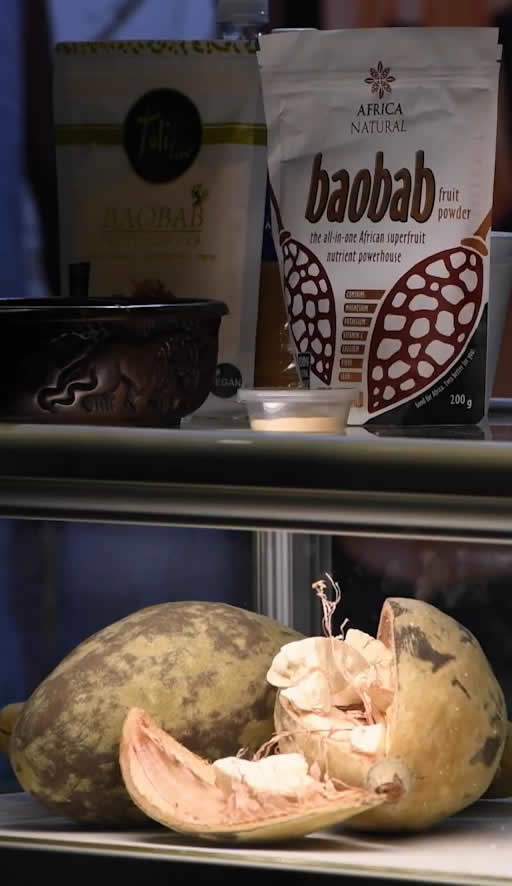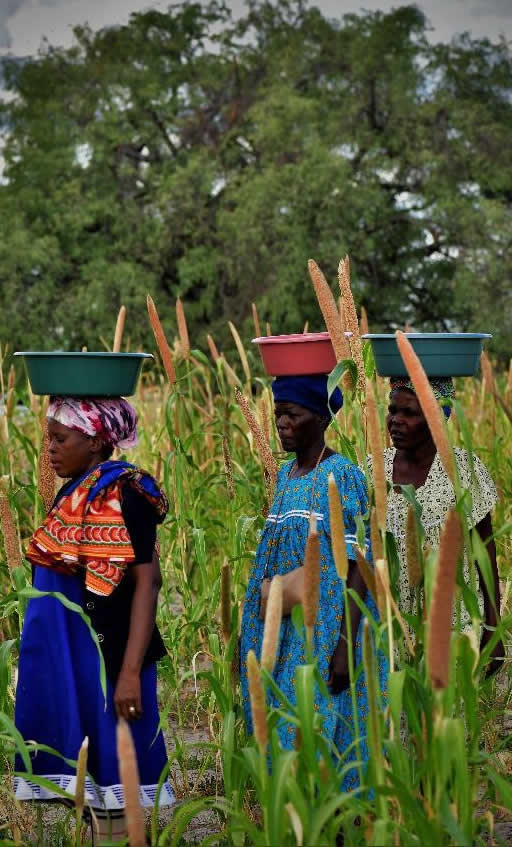3.1 NATIONAL REGISTRATION SYSTEM
Ulrich Feiter - CEO of Parceval and SABPA founder. Image source: https://www.abs-biotrade.info/
Output 3.1 of the UNDP/GEF6 Project, implemented by DSI, aims to support the registration system for TK linked to bioprospecting for ensuring ABS compliance in current and future agreements between indigenous and traditional knowledge holders and industry.
CULTURAL COMMUNITY PROTOCOLS
- Four bio-cultural community protocols (BCPs) will be developed. This includes facilitating and managing workshops with communities to develop and compile the BCPs.
DEVELOPMENT OF CATALAGUE OF COMMUNITY IK
- A catalogue of community indigenous knowledge (IK) that is associated with top 19 priority plants in identified communities will be created. This includes the compilation of community IK associated with the top 19 priority plant species using the IKRS data collection tools in 4 provinces (Mpumalanga, Limpopo, Free State and Northern Cape) with identified communities.
DEVELOPMENT OF CATALAGUE OF COMMUNITY IK
- A catalogue of community indigenous knowledge (IK) that is associated with top 19 priority plants in identified communities will be created. This includes the compilation of community IK associated with the top 19 priority plant species using the IKRS data collection tools in 4 provinces (Mpumalanga, Limpopo, Free State and Northern Cape) with identified communities.
DEVELOPMENT OF SOFTWARE REQURIEMENTS
- Develop a software requirement specification will be developed to enhance the indigenous knowledge registration system (IKRS) to enable a future one stop shop technology platform.
PROJECT MANAGER: Ms Kedi Aphane, DSI
3.2 NATIONAL BIOTRADE STANDARD AND CERTIFICATION
Output 3.2 of the UNDP/GEF6 Project, implemented by the DFFE with technical partnership with SANBI, aims to develop a biotrade certification system for South Africa with a view to safeguarding biodiversity conservation within bioprospecting value chains.
One of the targets of the draft NBES is the development of a South African biotrade certification scheme and standard. This target is well aligned to international market developments increasingly focussed on standards and certification aimed at giving assurance to buyers while at the same time ensuring that supply chains develop accordingly to international best practise examples. To keep the focus on conservation and sustainable use (CSU) central to the process, stakeholders were consulted and agreed that the standard will be called the CSU standard.
The benefit of the scheme is not only limited to increased CSU, better compliance and well-conceived strategic direction, but also positions South Africa well to further broaden and strengthen its position as a global leader in conservation and sustainable use and access and benefit sharing as this relates to the protection of biodiversity and the growth of the biotrade sector. Specifically, it will enable the DFFE as the implementing authority to increase alignment to and excel in its ability to meet responsibilities under the international structures and agreements:
- The Convention for Biological Diversity ·
- The Nagoya Protocol on Access and Benefit Sharing ·
- The Global Biodiversity Framework
In its essence the CSU Standard and scheme will be a mechanism which is aligned to international initiatives and agreements while being suitable and feasible for implementation in the South African context. Due to the unique and novel nature of the work implemented under this project, the aim in standard and scheme development will be to innovate and to attempt to find feasible, practical and groundbreaking answers not only for challenges experienced with CSU and ABS in South Africa, but also on international level.
The project is made up out of eight parts focusing on the below broad areas:
- The design and implementation of non-detriment finding (NDF) and Resource Assessment (RA) processes in the rooibos and honeybush industries.
- Review and analysis of best practise, new developments and lessons learnt over the past year in both the local, regional and international landscape through the implementation of a critical national and global landscape review.
- The development of the standard and scheme through a consultative and inclusive process to ensure that this is accessible and open to support the development of all businesses in South Africa.
- A phase to test the standard and scheme in practise to ensure that the final product will deliver what it is meant to: an accessible instrument to support development, continuously innovate how biodiversity is protected and how the biotrade sector is grown and meaningfully contribute to partnerships and alliance between South Africa and its development and trade partners.
Based on the above, it is clear that stakeholder engagement on both local and international levels and forming partnerships based on these engagements will be of crucial importance not only for the development of the standard, but also for the implementation going forward. The project is progressing very well and the NDF processes are well under way with workshops being implemented and already showing how these tools could be used to capture baselines, identify needed development actions and monitoring of species.
These instruments have great potential to not only focus on threatened species, but to be used to monitor and protect and to avoid damage to species in the first place and the project and standard is focussed on how this can be achieved.
The global landscape review shows the importance of collaboration with and learning from both the European and BRICS partners in this venture and the rich sources of information, support and platforms available to draw from in the process.
On the national landscape level, the initial analysis shows the complexity and diversity of the sector, but also the extraordinary potential that this implies. It also discusses the rich biological and cultural diversity and the great strides that South Arica has made in ABS and why this continues to draw the attention of international industry, buyers and development organizations alike. Lastly it details the high involvement of developing agencies as partners to the DFFE in this venture.
Even though this project is in the beginning phases, it is clear that this is going to be a true catalyst for the biotrade sector.
PROJECT MANGER:
Marthane Swart




